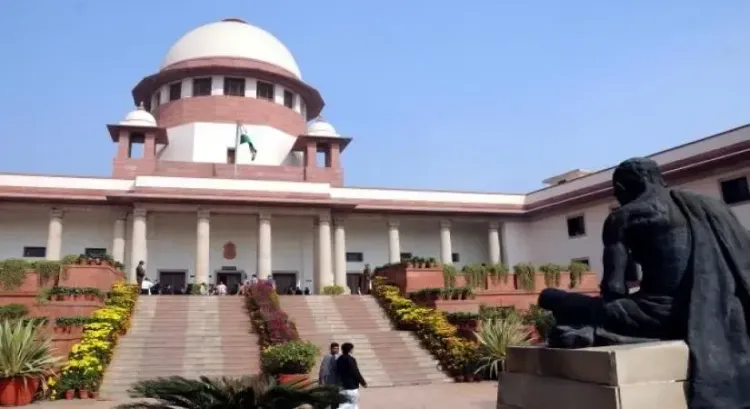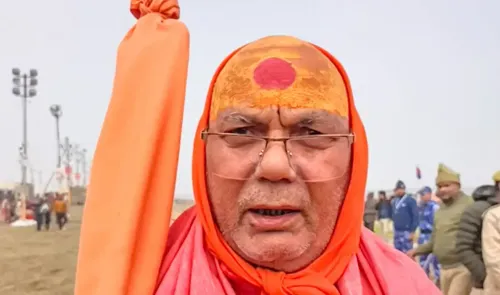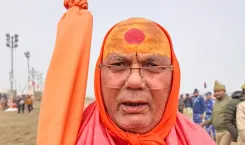Did the Supreme Court Just Order the Demotion of an Andhra Deputy Collector?

Synopsis
Key Takeaways
- Supreme Court orders demotion for violation of High Court orders.
- Deputy Collector T. Mohan Rao fined Rs 1 lakh.
- Importance of adherence to judicial mandates stressed.
- Consequences for contempt of court are serious.
- Judicial decisions reaffirm the rule of law.
New Delhi, May 9 (NationPress) The Supreme Court has mandated the demotion of a Deputy Collector in Andhra Pradesh who unlawfully dismantled the huts of slum-dwellers in Guntur district, contravening the directives of the High Court.
A bench led by Justice B.R. Gavai and Justice A.G. Masih has ordered the state government to demote Deputy Collector T. Mohan Rao to the role of tehsildar.
Additionally, he has been instructed to pay a fine of Rs 1 lakh within a four-week timeframe.
This ruling from the apex court followed a petition lodged by Mohan Rao challenging a High Court verdict that found him guilty of contempt and sentenced him to two months of simple imprisonment.
The bench noted that if he were to serve a two-month sentence, it would lead to his dismissal from service, thus jeopardizing his family's livelihood. However, to convey a strong message, the court has ordered his demotion by one rank within the service hierarchy.
In his capacity as tehsildar, Mohan Rao had disregarded the High Court's orders by removing the huts, which resulted in the displacement of the affected slum-dwellers.
The High Court had, on December 11, 2013, instructed him not to proceed with the removal of huts, following petitions from four individuals asserting that the revenue authorities were aiming to evict them without considering their claims.
Despite this order, the tehsildar proceeded with the hut removals in 2014.
In response to this contemptuous act, the High Court sentenced him to two months of simple imprisonment, emphasizing that compliance with court orders is fundamental to the rule of law which underpins democracy.
Mohan Rao subsequently contested this ruling in the Supreme Court.
During proceedings, senior Advocate Devashish Bharuka, representing Mohan Rao, argued that his client and his family would face dire consequences, losing their home. He also highlighted the impact on the education of the petitioner’s two children, who are in Classes 11 and 12, stating that their future prospects would be jeopardized.
The court had previously inquired if the petitioner would accept demotion to avoid imprisonment. Upon his refusal, the court expressed its frustration, noting that it was unreasonable for him to expect to escape consequences for his contemptuous actions against the High Court's orders.










